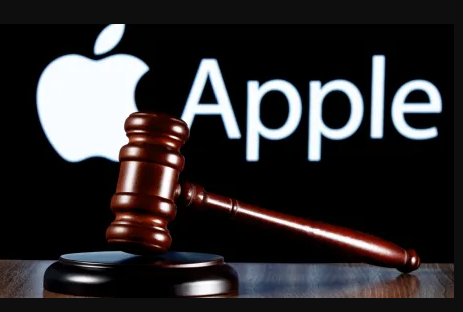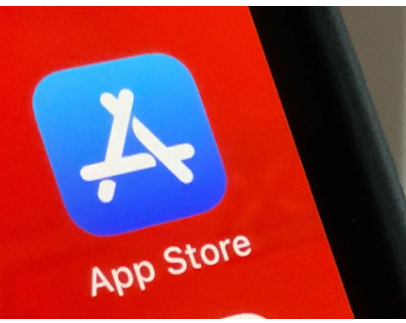Assignment
Achievement
Hire Experts
Reviews
Free Services
Grades
Offers
Order Now
50,000+
Orders Delivered
4.9/5.0
Star Rating
100%
on-time delivery
24 x 7
Query Resolution
100 +
Subjects Catered
Our Experts
Reviews
Free Assignment Services
☞Title Pages - 100 Words
$05.00 free
☞Downloading Free Guide
$20.00 free
☞Upload Completed Tasks
$20.00 free
☞Genuine Content Report
$20.00 free
☞Consultation By Experts
$06.00 free
☞Unrestricted Revisions
$10.00 free
☞Grammar Check for Task
$25.00 free
☞Plagiarism Inspections
$25.00 free
Book Now and get Free Services Upto $0.00
Grades
Offers

1. PLACE YOUR ORDER
Whenever you fill out their order form, please read it carefully and then fill it out.

2. MAKE PAYMENT
Choose our secure payment method to pay for your order and collect your order from us with security.

3. GET YOUR DOCUMENT
Our writers write you plagiarism-free assignments and provide them to you before the deadline.
Our Experts

Search Assignments

Customers Reviews
Apple is monopolizing the smartphone market and US federals are not buying it. The US department of Justice (DOJ) is leading a lawsuit against Apple. In the recent turn of events, four more American states- Indiana, Massachusetts, Nevada, and Washington have joined forces to fight against Apple.
The lawsuit was filed in the late March, which has 15 states in favor at the time of filing.
The lawsuit alleges that Apple is monopolizing the global smartphone market. In doing so, the company is charging more from app developers, merchants, suppliers, and small businesses all other involved parties.
In the end of May, Apple claimed that these Anti-trust allegations must be lifted-off immediately and lawsuit should be terminated. Apple claims that they face significant competition in the smartphone market from companies like Samsung and Google.

This dominance, according to the lawsuit, isn’t due to superior products or tough competition, but rather due to anti-competitive practices of Apple.
The lawsuit coincides with Apple’s announcement to imbibe artificial intelligence in its latest products. Apple is planning to merge Siri, Apple’s virtual interface, with OpenAI’s ChatGPT. This will give users exclusive access to ChatGPT’s interface. But to avail these benefits, users will have to upgrade to the latest OS updates. This will further snowball apple device replacement, Stanlay Morgan says.
These developments can further strengthen the argument of DOJ that users are locked in Apple’s ecosystem if they wish to access the latest technology.
The lawsuit is beyond charging high prices for its services. It’s more about Apple’s control over the entire iOS ecosystem.

Dominance in the App Store: The App developers for Apple required abiding by the in-app purchasing systems of Apple, where Apple charges a minimum of 15-20% commission over every in-app transaction.
Controlled App distribution: Apple is globally known for its privacy and safety features. But to achieve this, Apple strongly controls what appears on their app store.
As a result, competitors and alternative app stores find it difficult to compete with Apple. This limitation also limits choices and access to innovation for consumers.
Hinders ‘Super App’ development: Super Apps are all-in-one mobile platforms, especially popular in Pan Asia. A prime example of super app is WeChat, where users can exchange messages; make online payments, order food online, book online rides, play games and even access governmental services all within one app.
Interestingly, there are not many super apps in Apple’s app store. The lawsuit claims that Apple hinders development of such apps for iOS. It apple loosens its control over the app store; it would be interesting to see super Apps flourishing in the US, where the concept is less prevalent today.
Closed Hardware Ecosystem: You might have noticed that Apple’s products only work with Apple services and accessories. This is because Apple has designed its own, self-sufficient, ecosystem, where it does not require any other third-party support or accessory. This is also a major part of the lawsuit, which compels users to buy Apple products only, even if they are offered better prices and features somewhere else. As a result, Apple is accused of bundling its own services within its hardware in a way that disadvantages competitors.
Its prime example is pre-installed applications in iphones, which makes it difficult for users to remove and replace these with third-party alternatives.
Through controlled distribution and vetting process, today Apple is known for its unparalleled security. Opening the ecosystem to third-party would mean jeopardizing the security. Malicious apps might gain prevalence and users will have to be more careful about the source of their apps.
Wider variety of applications might also come with decreased overall quality. Without Apple’s umbrella, users might encounter sham or poorly designed apps.
This is an ongoing lawsuit, whose outcome is uncertain. It could take years before the final decision is made. So, the long-term implications of the lawsuit are difficult to predict. There are both opportunities for better innovation and more choices for users, and downsides related to higher security threats.
Disclaimer: all content and intellectual property remain the exclusive property of value Assignment Help




No Comments